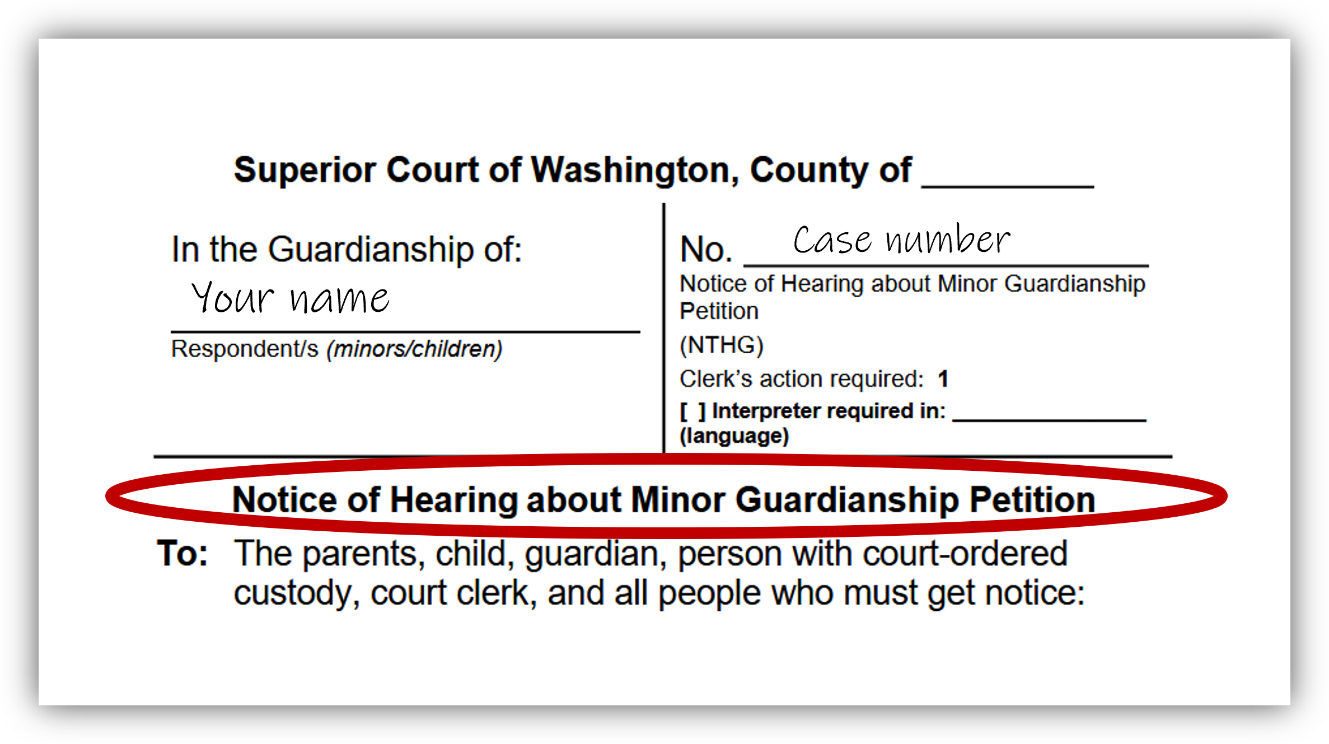Children's rights in minor guardianship
Reviewed for legal accuracy on
If you’re age 12 – 17 and someone has filed to have a court appoint a guardian for you, you have rights to take part in the case and to ask for a lawyer.
Fast facts
Under a state law that started in January 2021, this court process authorizes someone to take care of a child who isn’t their own. The process is officially called guardianship of a minor. A minor is any child under age 18.
Your legal guardian would have the same duties and responsibilities toward you as a parent for your support, care, education, health, safety and welfare. They would also get physical custody of you — you’d live with them.
The judge will only give someone guardianship of you if it’s in your best interest and one of these is true:
- Your parents agree to the guardianship.
- Their parental rights have been legally ended by a court (have been terminated).
- No parent is willing or able to take care of you.
Yes, the law allows a youth to file for guardianship for themselves. But the process is complicated. It can take time. It would be easier for your relative to file than for you to do it.
You and your relative may have other, cheaper, easier options. If your parents agree, they could give your relative power of attorney to take care of you. This would be good for at least 2 years. You wouldn’t have to go to court.
Your relative might also be able to consent to some health care for you, even if they don’t have guardianship.
An adult who isn’t part of the case must hand you the papers. Check the title of each page. It’s right under the caption on the first page of each pleading, in bold. The Notice of Hearing looks like this:

The papers you get should include:
- Notice of Hearing about Minor Guardianship Petition
- Minor Guardianship Petition (it might also be called an Emergency Minor Guardianship Petition)
- Summons
You may also have gotten other papers. Read everything you get carefully. The Notice of Hearing explains your rights. The Petition explains what the person who filed the case is asking for.
Maybe. If you’re age 12 or older, you can ask the judge to give you a lawyer (an attorney). If the judge agrees that you need a lawyer, they’ll appoint you one. You don’t pay the lawyer. The court will pay for it. If the judge doesn’t give you a lawyer, try to get legal help.
You can object to the guardianship. You can put your objection in writing and/or go to the court hearing and tell the judge you don’t want or need a guardian.
Yes! You have the right to take part in the case. This means you can
- Respond to the petition.
- Go to and take part in the court hearing.
- Communicate with the judge.
Your rights are listed in the Notice of Hearing about Minor Guardianship Petition that you should’ve been given as part of the papers that started the guardianship case. If you didn’t get this form, try to talk to a lawyer right away.
You have the right to ask a judge to end (terminate) the guardianship. The judge can do this any of these are true:
- The judge agrees you no longer need a guardian
- You’ve been emancipated
- You’ve been adopted
The guardianship will end automatically when you turn 18. You don’t need a judge’s order to end it at that point.
You can also ask the court to change (modify) the guardianship if you want a different guardian.
Answer a few questions on Get Family and Safety Forms to get the right forms for your situation.